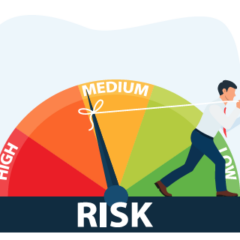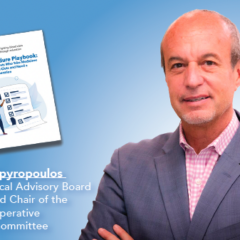Last updated on
Blood Clots and Mental Health
March is Blood Clot Awareness Month! As part of this important campaign, NATF is proud to present a very special episode of Patient Pulse addressing a critical topic: the emotional and psychological effects of thrombosis. Patients can experience everything from anxiety to grief to post-traumatic stress disorder after having a blood clot, yet these issues are often overlooked. In this roundtable discussion, we welcome a healthcare provider, a patient, and a friend of a patient to share their stories and discuss techniques for managing the emotional burden of blood clots.

Dr. Marie Gerhard-Herman is a cardiologist and vascular medicine specialist at the Brigham & Women’s Hospital in Boston, MA. She has decades of experience in counseling patients on both the physical and psychosocial aspects of blood clots.

Mr. Peter Donati is a company executive, devoted husband and father, and an avid athlete who had a pulmonary embolism (PE) 4 years ago.

Ms. Christina Martin has not had a blood clot herself, but the love of her life passed away from a PE in 2014. She has been dedicated to raising awareness around blood clots ever since.
Key Takeaways for Managing Stress, Fear, and Grief after a Blood Clot:
- Learn about what’s happened to you.
- Use trusted, vetted sources of knowledge rather than relying on anecdotes or hearsay.
- Remember that not everything will be known or can always be explained.
- Schedule an appointment with your healthcare provider to specifically address any questions you may have about your blood clot, including:
- What exactly happened to me?
- What problems could I have going forward?
- What symptoms should I be looking out for? Ask questions about what should prompt you to seek medical attention.
- How can I better manage the stress or anxiety that I’m feeling?
- Understand your response(s) to illness.
- This response ranges from “what is this feeling in my leg?” to “what will happen tomorrow?”
- You must recognize your responses in order to modify them.
- Stress will always be present in our lives, so the key is to figure out ways to manage the effects of stress on our body. Cortisol and adrenaline are two hormones that rise in the face of stress. To lower those hormone levels, practice deep breathing. Inhale deeply for 4 seconds, exhale out for 4 seconds, and repeat several times.
- Continue to exercise if it’s safe to do so.
- You know your body and mind better than anyone else. If you have a problem that you don’t feel has been adequately addressed, continue to communicate with your healthcare provider.
- Use the repetition method. After talking to your provider, ask your provider to repeat back what you said to make sure that you’re communicating clearly.
- Don’t leave unanswered questions on the table. If you still have questions at the end of your appointment that have not been addressed, ask your provider about the best way to get those additional questions answered.
- Involve your friends or loved ones in your recovery. It often helps to have another set of eyes and ears to help you navigate and communicate the symptoms and feelings you may be experiencing.
Additional Resources
Articles:
7 Steps to Developing a Beneficial Stress Response
Just Relax: Practicing Meditation to Combat Stress and Improve Your Health
Books:
-
- Available in hard cover and as audiobooks
- Explain the science behind the impact of stress on changes in your body
- Has specific strategies that you can easily implement
Other Resources:
Mind Body Institute Programs (for example, the Benson-Henry Institute for Mind Body Medicine at Mass General Hospital)
-
- Programs include people with a wide range of illnesses
- Offer instructions on particular techniques
- Have a range of class types
Fundraising:
Manu Williams Charity Events Fund: https://www.mawcharityevents.com/



